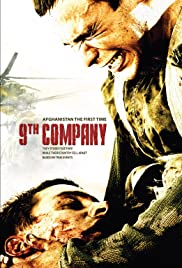Search

The picture opens in Krasnoyarsk, Siberia, in late 1988, when military trainees Petrovsky, Ryaba, Chugun, Stas, Pinochet, Lyutev and Vorobyev are whipped into shape at a training camp by the brutal, sadistic commander, Warrant Officer Dygalo – prior to being sent off to the front lines. After several one-by-one dalliances with the local whore, Snow White, and a cautionary lecture on the history, geography and culture of Afghanistan (which most of the men sleep through), the trainees head off to battle – first to the Bagram air base, then to the Afghani province of Khost to secure supply lines. But nothing can begin to prepare them for the brutal devastation into which they are plunged, or the relentless tide of slaughter that scatters thousands of Soviet victims in its wake.

Third Man on the Mountain is an American film directed by Ken Annakin and produced by Walt Disney Productions, released in 1959. It is adapted from a novel by James Ramsey Ullman, entitled “Banner In The Sky”. In the middle of the 19th century in Switzerland, a famous British mountaineer, Captain John Winter, wanted to climb a difficult summit, the Citadel. He goes to a small village but no guide wants to accompany him. A young man from the village, Rudi Matt, whose father died fifteen years earlier during an attempt to climb the Citadel, is determined to accompany him, with the help of his uncle. Winter also manages to hire a guide from a neighboring village and competitor, Emil Saxo. The roped party of four men then begins the ascent of the still untouched summit.

In the early morning of April 9th 1940 the Danish army is alerted. The Germans have crossed the border; Denmark is at war against Europe’s strongest army. In Southern Jutland Danish bicycle- and motorcycle companies are ordered out, to against all odds, hold back the forces until the Danish reinforcements can be mobilized. In the fatal hours, we follow second lieutenant Sand and his bicycle company – they will as the first Danish soldiers meet the enemy in combat on April 9th 1940.